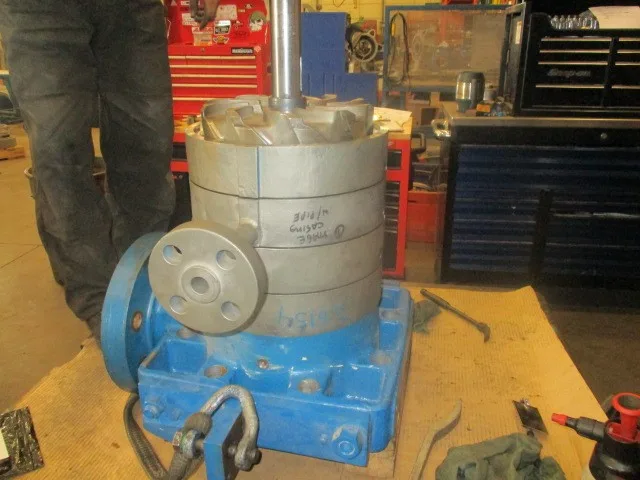Hydro was proud to participate in this year’s Empowering Pumps‘ virtual Maintenance & Reliability Summit. This year’s summit brought together industry experts for a powerful conversation about today’s maintenance challenges.
The summit featured prominent voices including Hydro’s Greg Bell, who strives to be a solutions provider while bringing the end user perspective to the aftermarket business through his years of experience at Gulf/Chevron.
The discussion, led by Empowering Pumps & Equipment President, Vince Marino, revealed critical challenges that maintenance organizations face across industries, particularly the widespread issue of understaffed crews and the loss of experienced personnel. Participants explored how legacy equipment, built decades ago, continues to operate under conditions far different from their original design parameters, requiring innovative engineering solutions rather than simple replacements. They also shared compelling examples of how proper application knowledge and proactive maintenance cultures can prevent costly downtime and extend equipment life.
You can watch this year’s summit here:
<
>Learn more about Empowering Pumps and Equipment here.
Read more about Hydro’s case studies in performance and reliability improvement on our blog.




 In-depth field testing paired with computational analysis provides a clear path to both an accurate diagnosis and a solution that has a high likelihood of success. The effectiveness of this methodology was proven for a Gulf Coast midstream company who was experiencing high vibration with their vertical freshwater pumps. By applying advanced field diagnostics, the end user was able to understand the underlying causes of the vibration and evaluate possible solutions in a theoretical environment prior to implementing them in the field.
In-depth field testing paired with computational analysis provides a clear path to both an accurate diagnosis and a solution that has a high likelihood of success. The effectiveness of this methodology was proven for a Gulf Coast midstream company who was experiencing high vibration with their vertical freshwater pumps. By applying advanced field diagnostics, the end user was able to understand the underlying causes of the vibration and evaluate possible solutions in a theoretical environment prior to implementing them in the field.

 The importance of engaging with a facility that has strong engineering capabilities and subject matter expertise was proven during a series of boiler feed pump repairs for a Canadian biomass power plant. Like many biomass facilities, this plant had segmental ring boiler feed pumps, also commonly referred to as BB4 pumps. This is a complex design installed in a high energy, critical application, with numerous stacked and nested components that must be kept in alignment.
The importance of engaging with a facility that has strong engineering capabilities and subject matter expertise was proven during a series of boiler feed pump repairs for a Canadian biomass power plant. Like many biomass facilities, this plant had segmental ring boiler feed pumps, also commonly referred to as BB4 pumps. This is a complex design installed in a high energy, critical application, with numerous stacked and nested components that must be kept in alignment.